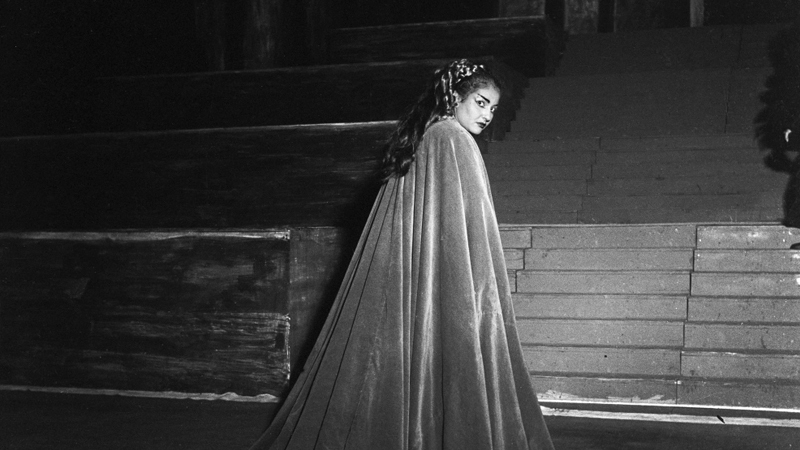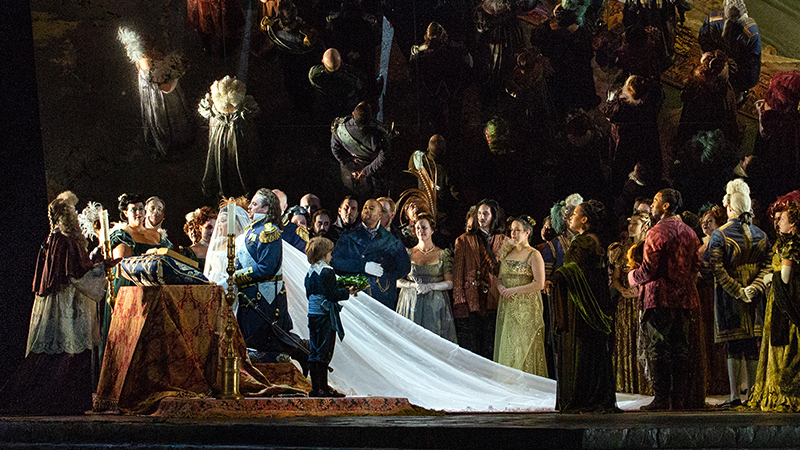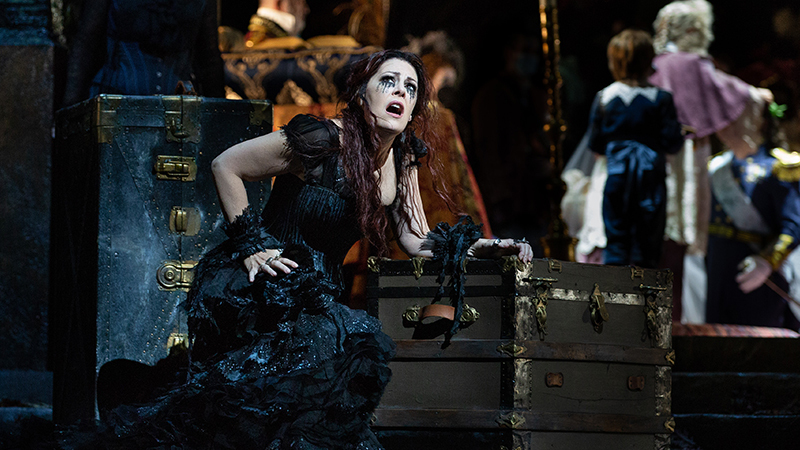A rarely performed tale of mythic vengeance, Luigi Cherubini’s
Medea features one of the most challenging roles in opera history, punctuated by a daring and expressive score.
Having helped Jason (Giasone) to steal the Golden Fleece, the sorceress Medea discovers that he has abandoned her, taking their children with him to Corinth in order to marry the princess Glauce. His cruel rejection unleashes Medea’s terrifying rage and hunger for revenge, setting in motion one of the great tragedies of Greek mythology—and operatic storytelling.
Read on to learn more about the music of
Medea, which comes to the COC stage for the first time ever next season.
Spoiler alert: the following content contains plot points that some audience members may not wish to know in advance!BUY TICKETS
- Director Sir David McVicar has described Medea as the soprano’s equivalent to Hamlet: a performance that requires the title character to be on stage for virtually the entire opera, demanding extraordinary endurance, focus, and virtuosity. Internationally celebrated soprano Sondra Radvanovsky calls it a marathon and has even developed a tailored workout regimen to support the extreme physical demands of her performances.
- The titular role of Medea is strongly associated with legendary Greek-American soprano Maria Callas, who revived interest in the opera through her recordings and performances in the 1950s and 1960s. In particular, her performances at La Scala in 1954 under the baton of the young Leonard Bernstein has become the stuff of operatic legend. To this day, the lead role has only been tackled by a small number of singers, including Leonie Rysanek, Gwyneth Jones, and Montserrat Caballé.

- Cherubini composed Medea towards the end of the French Revolution, bridging the gap between stately eighteenth-century and early Romantic musical styles. The heroine’s self-destructive violence no doubt resonated among audiences who had only recently come through the chaos of the Terror. And while the revolutionary years saw possibly thousands of new theatrical productions mounted in France, Medea remains the only opera that still enjoys wide recognition today.
- Cherubini was greatly admired in his own time by composers including Haydn, Beethoven, Rossini, and Chopin. Beethoven owned a copy of the score of Médée and is known to have particularly admired Cherubini’s orchestral flair—it has even been noted that certain themes from his Pathétique Sonata bear a strong resemblance to parts of Cherubini’s opera.

- The magnificent vocal writing is largely carried by Medea herself, from her Act I aria "Dei tuoi figli la madre" ("You see the mother of your children"), in which she tries to win back Giasone, to the heartbreaking despair and horrific fury she displays in Act III. Yet amid the overwhelming musical intensity of these pivotal scenes, there are also quieter moments of great beauty—such as when the servant Neris sympathizes with her mistress in the Act II aria "Solo un pianto" ("Only to weep").
Sample another gorgeous moment in the clip below, which features COC Ensemble Studio soprano Ariane Cossette performing Glauce’s Act I aria “O Amore, vieni a me” (“Oh love, come to me”), from our Season Preview Concert.



_20240704163452_0.png)